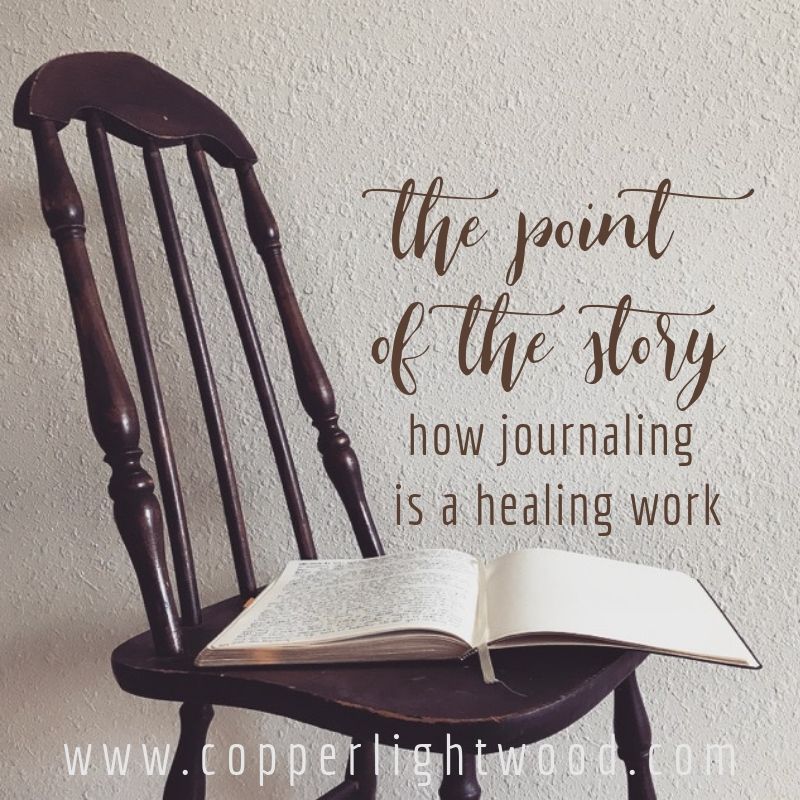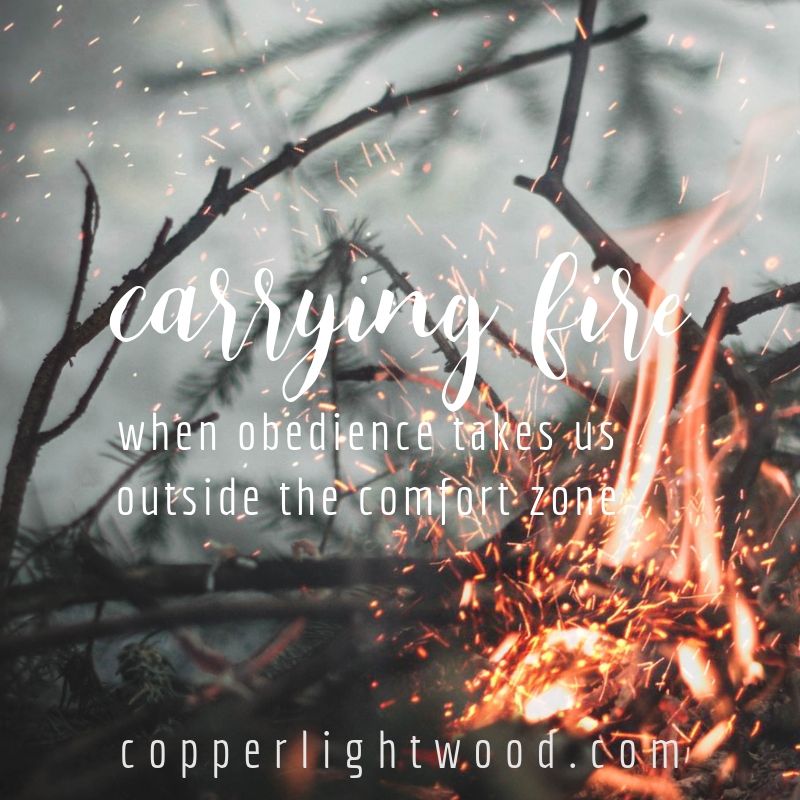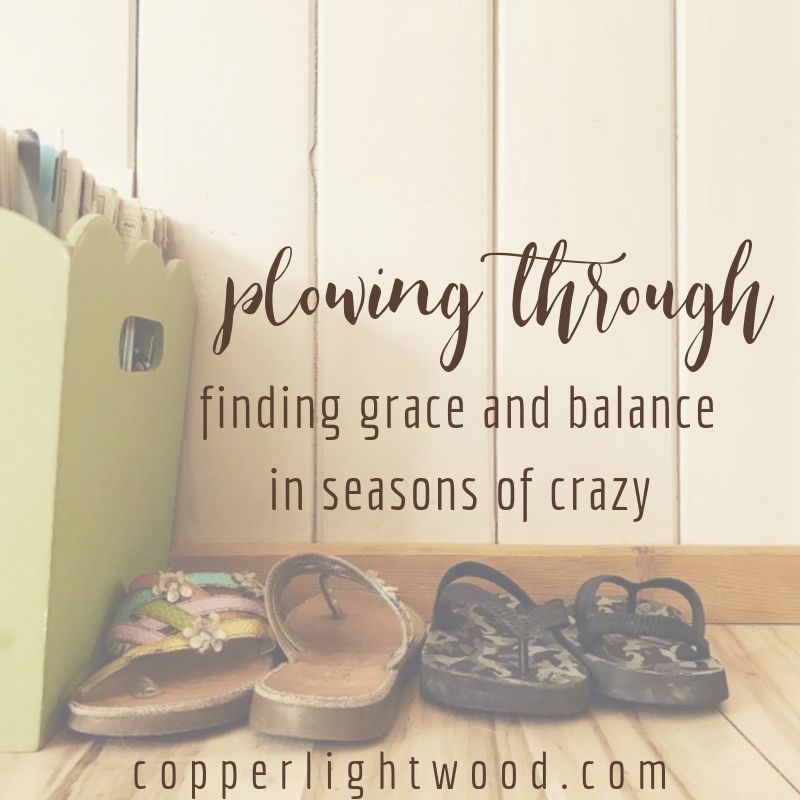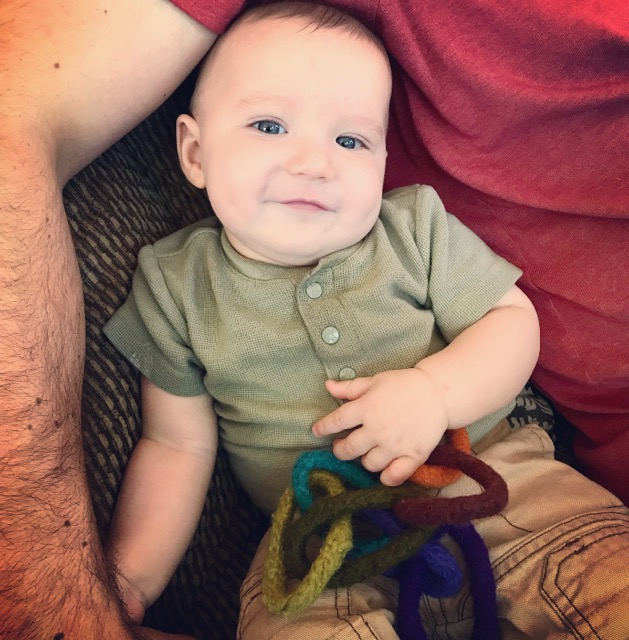I looked for a pen but there were none on my desk – none, except for the light blue one which is too pale for journaling, and the .005 drawing pen I have a crush on and am afraid to use up. But Vin keeps a bunch of pens in a mug on the shelf in our room, so I went there and found the motherlode of blue pens: That’s mine, and that one’s mine, and oh yes, that one’s mine, too. How did all of these get here?

When I finished pilfering it, the mug was still full of green pens – his favorite – and some black ones, but he knows I won’t touch black pens unless the end of the world has arrived, or blue pens no longer exist…which might be the same thing.
Someday my great-great-great grandkids will go through all my journals, and they’ll find a ridiculous number of entries including complaints about bad pens, missing pens, or favorite pens running out of ink. Some of those entries start like this:
A quick minute with an unfavored pen, waiting for Reagan to finish up on the potty at bedtime. (In terrible, thick black ink.)
Well, this pen might not work. (Ink fading on the upward strokes.)
Some quick thoughts with an ugly pen – my kingdom for some blue ink – before falling asleep. (There is no curse in Elvish, Entish, or the tongues of men for how I feel about black gel pens.)
Aaand we have a wonderful blue-inked pen! I found it hidden in the buffet drawer.
Other journal entries have remarks like these in the middle:
Wow. That was atrocious handwriting. Partly the pen’s fault – the good ball point is over at my desk. (Black ink should never be used on a particularly emotional day.)
And some entries end like this:
See? Handwriting. I really should find a better pen.
I think I despise this pen for journaling.
Aaand I hate this pen.
Journaling for me is like mental housework – twice this month I only got a short paragraph in before some interruption hit, and then it was almost two weeks before I even touched the journal again. Once I did, I dove in to grasp at all the emotional and spiritual clutter that had accumulated over those weeks to see what would emerge. Like neglecting laundry for weeks at a time, when I finally dug through the piles and straightened things up, I found treasures I thought were lost a long time ago.
Journaling is good for both normal tidying and also the occasional necessary deep cleaning. Writing is a healing work.
I thought that when we started writing full time I’d have more time to journal, but that hasn’t been the case because most days, all my writing time is done at the computer. But other times I end the week with journaling and get to start the next week with journaling, too, and it’s in times like those when I realize the weekend in between sometimes feels no longer than the thin line separating the two entries.
But there’s so much good to be had from sitting down with a good pen and lined pages, to force ourselves to slow our thinking long enough for our fingers to catch up with. It gives us the time we need to draw deeper things out of ourselves that we can’t always access while just typing – or worse, texting.
If those great-great-great grandkids ever go through my journals, they’ll also find that my published books left a lot of things out. Not every behavior was mentioned in Upside Down, and not everything God told me during that period was divulged in Oh My Soul.
And in the book I’m working on now, not every conflict, attack, and catastrophe that occurred during our adoption process and the first few years afterward is detailed out. Partly because it’s not meant to be some dramatic exposé. But mostly it’s to protect the guilty, and the innocent, and the misunderstood…and sometimes those are the same people, but not always.
I wrote a while back about the struggle to tell our story when it overlaps with the stories of others. And now, several months later, I can see that the process of filtering our story has distinct layers. First, pull all the material that might work, then go back through all of that and run it through a finer sieve. Whatever’s left after all the sifting is, so far, what gets to stay. Taking the time to work through that process generates an intuitive sense of what fits and what doesn’t.
The significant stuff that’s left out isn’t eliminated because it had no impact on the story. It’s left out because it’s not the point of the story. And sometimes (often) the things that were meant for harm don’t deserve all the attention the enemy wants them to have.
I couldn’t see it then when we were in the middle of it, but now I can look at the progress with a bigger, broader perspective and see the good that came (and is still coming) from awful circumstances, from walking through a season of darkness and brokenness. And part of the good that comes from it is the maturity and equanimity to see that those harmful issues, circumstances, and people were never the focus of our story, no matter how much they overshadowed it.
Those hard things were just ingredients, or seasoning, that flavored that time of our lives. Their effect was like bay leaves in soup – they influence flavor, but they’re indigestible. We’re not meant to internalize them. So we take them out so no one chokes on them or ingests too much of their influence.
And as I work through this project, that is one of the other ways that writing is healing me.
If these books…represent the new memoir at its best, it’s because they were written with love. They elevate the pain of the past with forgiveness, arriving at a larger truth about families in various stages of brokenness. There’s no self-pity, no whining, no hunger for revenge…We are not victims, they want us to know. We come from a tribe of fallible people, prisoners of our own destructiveness, and we have endured to tell the story without judgment and to get on with our lives.
– William Zinsser, Inventing the Truth: The Art and Craft of Memoir
We’re only meant to be an open book to God. Even our spouses can’t be expected to handle it all – and if you want to argue this out with me, first tell me how opening fire with all your unfiltered thoughts and criticisms is working out for you.

This stack is my current required reading for writing memoir, as opposed to the most recent crappy memoir I read – which I won’t call out here, but you can easily find it if you poke around my Goodreads page. And actually, one of these is a wild card, though it’s a highly recommended one. (I have known such wild cards to be terrible, but not often. See above reference to crappy memoir.)
The truth is that memoir writing, like every other kind of writing, comes in both good and bad varieties. That’s the only standard that matters. Whether the authors of certain notorious recent memoirs ought to have revealed as much as they did, breaking powerful taboos and social covenants, isn’t finally the issue. The issue is: Is it a good book or a bad book?
– William Zinsser, Inventing the Truth: The Art and Craft of Memoir
But these other three should be safe – you can’t go wrong with E.B. White and William Zinsser; you’re almost never sorry for reading them. They are writers for writers, who make you want to write.
These are the kind of books you shouldn’t read on your day off because you catch yourself putting notes into your phone for Monday, and those notes turn into sentences and the sentences turn into paragraphs, and a few minutes later you’re like, Oh, screw it. You grab your pen and notebook and start working in earnest.
And if you read Vin’s recent post, you know how dangerous that is. Those weekends, you know, are sometimes as thin as the line between two journal entries, and time for rest and Sabbath is important. So I might be at risk of having my books confiscated for the weekend.
Which, come to think of it…might be how I lost all those blue pens, too.



